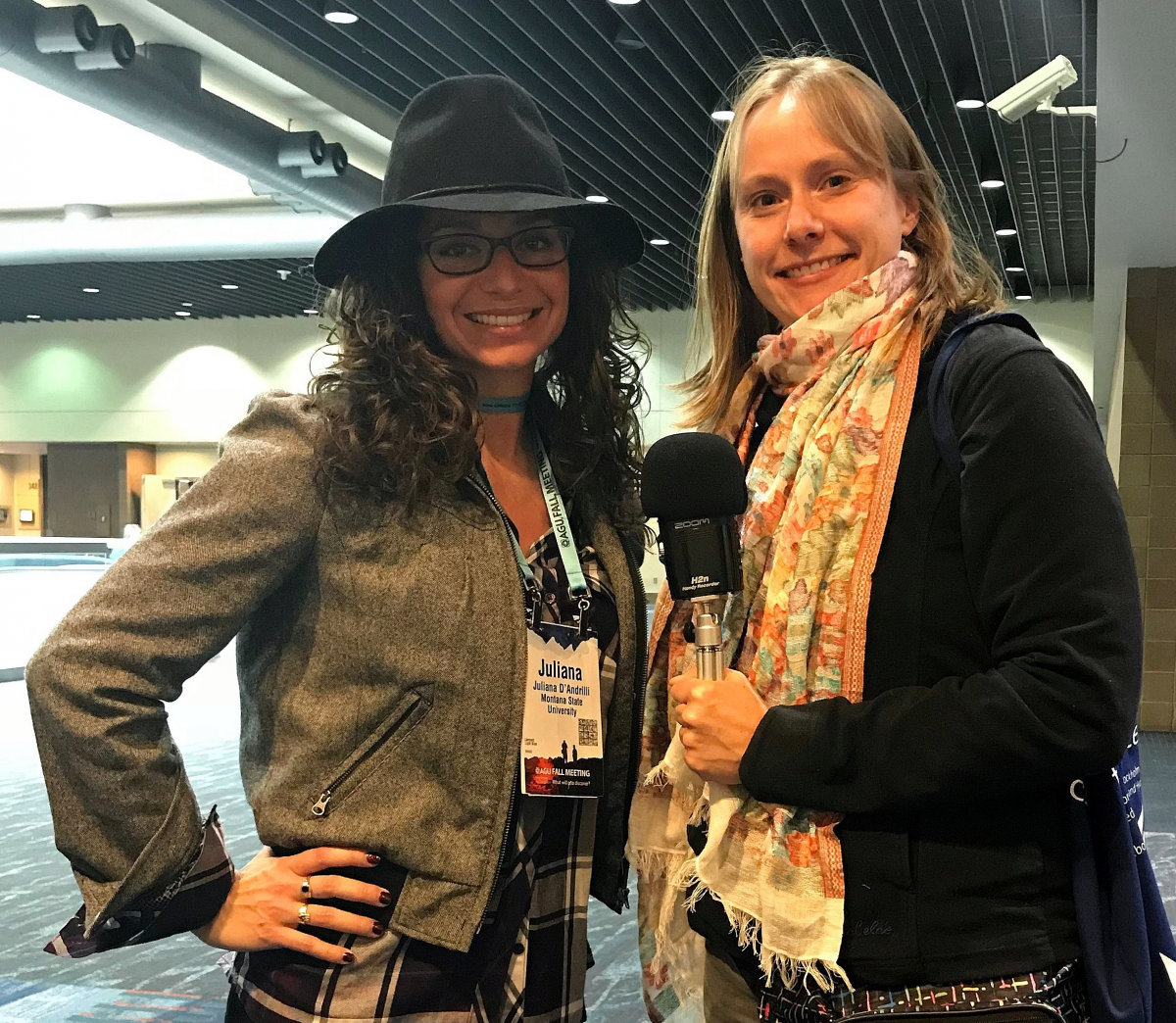
This month's podcast is an interview with Dr. Juliana D'Andrilli recorded at the American Geophysical Union Fall meeting in New Orleans, Louisiana. We discussed how scientists from across disciplines perceive and describe dissolved organic matter and how we can collaborate to characterize dissolved organic matter at the global scale.
Dr. Juliana D'Andrilli is an Assistant Research Professor in the Department of Land Resources & Environmental Sciences at Montana State University. She is interested in the evolution of dissolved organic matter in ancient and modern aquatic and terrestrial ecosystems by investigating its quality, quantity, and other environmental contributing biological and geochemical factors to better understand biogeochemical processing and its impact in a changing climate. Dissolved organic matter research requires a combination of bulk and molecular level chemical, biological, and ecological techniques. Since dissolved organic matter is woven in a web of related environmental factors, it is imperative to collaborate with interdisciplinary scientists to gain a better understanding of its present contribution to the global carbon cycle and the implications for the future.
Related articles
- D’Andrilli, J., Foreman, C.M., Priscu, J.P., Sigl, M., and McConnell, J.R. A 21,000 year record of fluorescent organic matter markers in the WAIS Divide ice core, Climate of Past, 2017, 13: 533-544.
- D’Andrilli, J., Cooper, W.T., Foreman, C.M., and Marshall, A.G. An ultrahigh resolution mass spectrometry index to estimate natural organic matter lability, Rapid Communications in Mass Spectrometry, 2015, 29: 2385-2401.
- D’Andrilli, J., Foreman, C.M., Marshall, A.G., and McKnight, D.M. Characterization of IHSS Pony Lake fulvic acid dissolved organic matter from Fourier transform ion cyclotron resonance mass spectrometry and fluorescence spectroscopy, Organic Geochemistry, 2013, 65: 19-28.
Running Time: 21 minutes
Host: Julie Kelso
Published: 6 February 2018
Listen to the podcast
Listen on the SFS YouTube Channel
MP3 (28 MB)
Read a full transcript of this episode here.
The views expressed in the podcast are those of the interviewee and do not necessarily reflect the consensus opinion of the general SFS membership.

